Major Power Relations
Your Present Location: PROGRAMS> Major Power Relations-
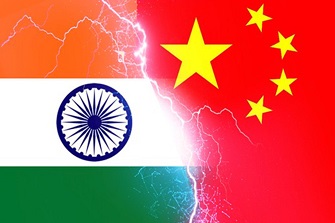
Liu Zongyi: What do India’s restrictions on Confucius Institutes show?
During the Galwan Valley clash, it was India that violated the China-India bilateral agreement on the Line of Actual Control. However, China does not want the accidental clash to affect the stability and development of bilateral relations. Therefore, after the clash, China has kept a relatively low profile on a series of issues involving China-India relations, and Chinese media has not reported much on the clash. This is mainly because China wants to save some face for India, and to maintain the overall stability of bilateral relations.
2020-08-05 -
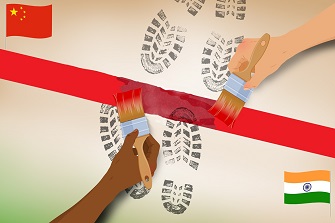
Long Xingchun & Zhang Sheng: Sinophobia and Indian nationalism a bad mix
In the wake of the border conflict between China and India in the Galwan Valley, both the Indian government and a group of Indian individuals have clearly demonstrated their vehement ultra-nationalist zeal and extreme Sinophobia. This type of Sinophobic zealotry is attempting to exacerbate a simple border conflict into economic decoupling. After some Indian nationalists advocated boycotting Chinese goods, surprisingly, the Indian government was soon infected by their irrationality to and abused the concept of "national security" to ban 106 Chinese apps. New Delhi moved even further and irresponsibly disallowed Chinese companies to participate in road construction projects in India.
2020-08-05 -
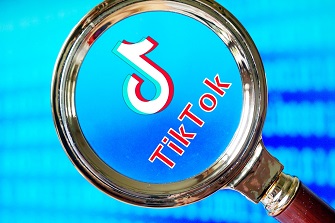
Zhao Minghao: Racism, McCarthyism and Trump’s attack on TikTok
The Trump administration's crackdown on TikTok is another step in a new cold war against China. While US Secretary of State Mike Pompeo claimed that the US was targeting the Communist Party of China (CPC), the White House is actually going on the offensive against Chinese companies - especially private ones. Over the past few years, TikTok has become a US company. Its management team is made up entirely of Americans who would never risk breaking US laws for the benefit of the CPC.
2020-08-04 -
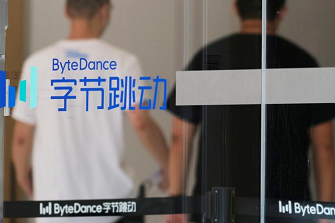
New Cold War and unhappy influencers: What TikTok's U.S. ordeal means
Last Friday, U.S. President Donald Trump announced that he would invoke emergency powers to ban TikTok - the hottest social media app in the U.S. currently and known for being a major platform where Gen. Z posts popular online memes and lip-sync videos. The Trump administration said the app needs to be banned because its Chinese parent company ByteDance is in a position to surveil and steal American users' personal data. President Trump has since flip-flopped on the threat and has given the Chinese internet giant 45 days to negotiate a sale of the app to Microsoft, or face a shutdown of its U.S. operation, according to Reuters.
2020-08-04 -
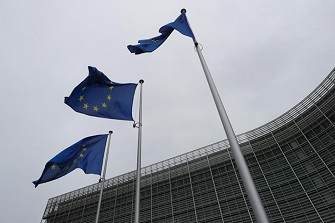
EU sanctions on HK ‘symbolic’
The European Union (EU)'s sanctions on China over the Hong Kong affairs are a "symbolic gesture" to strike a balance between Washington and Beijing, as the measures will only have a limited impact on Hong Kong, observers noted. However, they warned that the EU should carefully watch its further steps, and avoid tilting to the US, especially as US elections are approaching, because any further provocation against China will only undermine the basis of China-EU relations, which are hailed as a model of pragmatic international relations, and sabotage the bloc's time-honored diplomatic independence.
2020-08-03 -
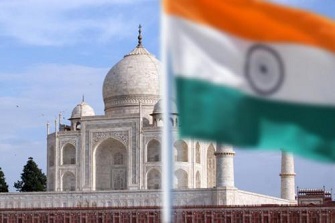
Lin Minwang: Will non-aligned India break oath under US’ lure?
Indian External Affairs Minister S. Jaishankar on Monday said that "non-alignment was a term of a particular era and geopolitical landscape" but New Delhi will never be part of an alliance. He said global shifts were opening spaces for middle powers including India. "But countries who depended more on the US are finding they have to take a call themselves on many issues," he noted.
2020-08-01 -
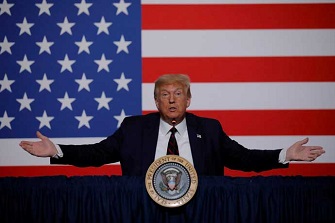
Zhao Minghao: What Does Trump Want?
U.S. Secretary of State Mike Pompeo’s speech at the Richard Nixon Presidential Library and Museum on July 23 ratcheted up the hostility of the Trump administration’s China policy, as he explicitly identified the Communist Party of China as the target of U.S. rhetoric. A day earlier, the U.S. abruptly ordered China to close its consulate in Houston, Texas, prompting the latter to retaliate by ordering the U.S. to close its consulate in Chengdu, Sichuan province. A very dangerous “spiral of confrontation” is evidently taking shape in China-U.S. relations, with some people talking about an unfolding “new cold war” between the countries. Others worry a hot one may occur.
2020-08-01 -
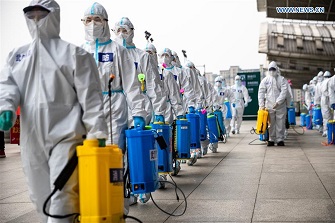
Antonino Villafranca: Healthcare wards off financial illness
Countries better prepared to respond to the COVID-19 pandemic from a healthcare perspective were less likely to need a strong economic response, which is a link that needed to be acknowledged, an Italian expert said. Antonio Villafranca, research coordinator and co-head of the Italian Institute for International Political Studies' Europe and Global Governance Centre, said when the coronavirus outbreak hit Europe he and his colleagues were asked by European governments to look at economic remedies.
2020-07-31 -
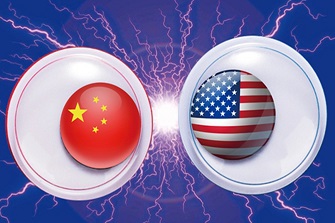
【No to the New Cold War】No to the new cold war with China: an African American perspective
China's Ambassador to the US posed a very simple question: "Is the US ready or willing to live with another country with a very different culture, a very different political and economic system ... in peace?" The answer to this question must be that despite the intentions of the US rulers, the people must opt for peace. For the Black liberation and anti-imperialist movement in the US, we are clear - War is a class issue and we say not one drop of blood from the Black working class and poor to defend the capitalist oligarchy.
2020-07-31 -
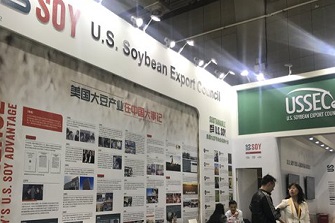
Joint efforts needed to fulfill China-US trade deal
Imports from the US have made steady progress in recent months, yet joint efforts from firms on both sides are still needed for the phase one trade agreement to overcome the difficulties caused by the COVID-19 pandemic, said a Chinese official. In the first half of the year, China's trade with the US plunged in contrast to the overall upbeat trend in China's foreign trade. Bilateral trade denominated in the yuan dropped 6.6 percent in the first half year-on-year. China's imports from the US were down 1.5 percent to 395.62 billion yuan ($56.49 billion) in January-June, according to China's General Administration of Customs.
2020-07-31 -
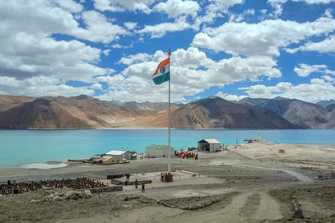
Liu Zongyi: The Crux of the Current China-India Relations
China and India are trying to resolve the boundary standoff and ease bilateral tensions through diplomatic and military channels. I recently participated in track-two dialogues aimed at deepening mutual understanding, some of which involved the Indian Ambassador to China. However, based on my observation, the ongoing boundary standoff is a reflection of the underlying problems within the bilateral relationship. There is a big gap between China and India on certain issues which make it difficult for the two sides to reach a consensus.
2020-07-30 -
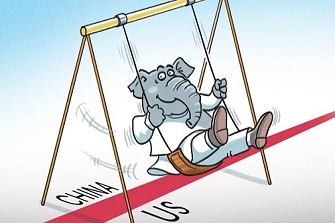
Liu Zongyi: Domestic politics, nationalism misguide India's China policy
Despite the de-escalation of border tensions between China and India, New Delhi hasn't stopped its China smear campaign, accusing Beijing of being expansionist. At an all-party meeting on June 19, Indian Prime Minister Narendra Modi said that no one entered Indian territory, nor were Indian posts taken, but he strongly criticized "expansionism" in early July, saying "era of expansionism is over" as he paid a visit to a border military base. This was widely regarded as a message sent to China, though Modi did not mention China specifically.
2020-07-29 -
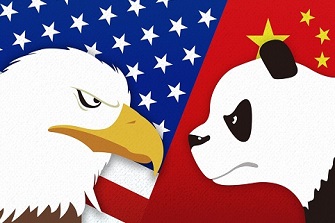
Zhao Minghao: Trump policy toward China skewed by academic fanatic
As a Chinese researcher of the US, I have been searching for the best way to understand the country. I spent some time studying at Purdue University in Indiana, which is a very "American" place. While there, I not only discussed international relations problems with US professors, but also attended local church activities where I listened to ordinary Americans praying and singing songs in praise of God. I still miss that place and those kind and friendly Americans.
2020-07-28 -
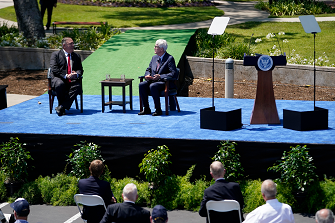
William Jones: Can the U.S. learn to live with a rising China?
This was the "fundamental choice" for America as posed by China's Ambassador to the U.S., Cui Tiankai, in a recent interview with CNN's Fareed Zakaria. Now Chinese diplomats are being closely monitored in their contacts with U.S. officials at all levels of government. Chinese scholars working and studying in the United States are being hounded and in some cases thrown out of the country on alleged suspicions of "spying" for China. U.S. firms are being encouraged to shun China and a Chinese consulate in the U.S. has been abruptly ordered to shut down.
2020-07-25 -

Closing Chinese consulate in Houston jeopardizes trade worth billions
Washington’s order forcing the Chinese Consulate General in Houston to close will likely hamper business ties worth billions of dollars between the eight US states that the consulate serves and China, a former Chinese diplomat in the US said. In what Chinese officials call an “unprecedented” escalation of tensions, the US government has ordered the consulate closed, the Chinese Foreign Ministry confirmed on Wednesday. The consulate, which opened in 1979, serves eight southern US states – Texas, Oklahoma, Louisiana, Arkansas, Alabama, Georgia, Florida and Puerto Rico.
2020-07-24 -
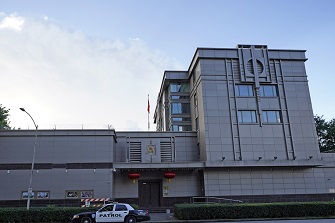
Consulate closure to hurt business ties
The abrupt move by the US to order the closure of the Chinese consulate in Houston, Texas could hamper $60 billion worth of trade between the eight US states the consulate covers and China, as well as hundreds of Chinese businesses operating in southern US states, former Chinese diplomats, business leaders and experts said Thursday.
2020-07-24 -
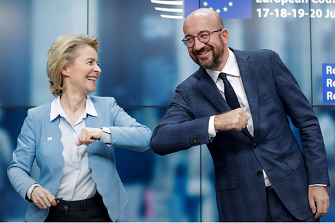
With COVID-19 deal reached, EU comes out stronger but problems remain
As the EU summit wraps up its marathon sessions in Brussels, leaders of the 27 member states have walked out of the conference with a deal that EU officials call a historical step towards greater integration. While this apparent victory indeed calls for celebration, experts say it should not overshadow the underlying problems that were brought to light during the fractious summit.
2020-07-23 -

Wang Wen: China confident ‘de-dollarization’ is fast underway amid tense times
A global trend toward "de-dollarization" has already begun. The last piece of "load-bearing wall" of the "US Empire State Building" has cracked, in other words. Global policies for "de-dollarization" include sharply reducing US debt holdings, dropping US dollar's status as an anchor currency, increasing non-dollar bulk commodity trade, growing the reserve of non-dollar currencies, and ramping up gold's hedge against the dollar.
2020-07-21 -
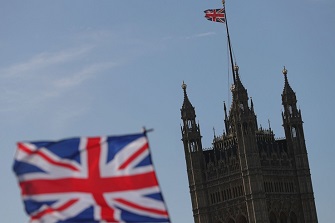
Beijing may target British companies if 10 Downing Street sanctions China
The British government has been urged to make a "smart choice" and not to burn bridges by continuing to provoke China on matters such as Hong Kong, Xinjiang, Huawei and the South China Sea, and dance to the tune of Americans. Otherwise, it will face severe consequences of souring UK-China ties, officials and observers warned.
2020-07-21 -
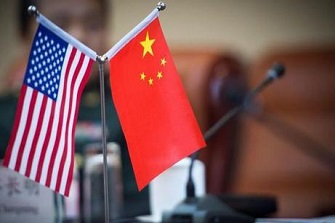
US travel ban on CPC members ‘paranoid,’ risks dragging ties to 1972
The Trump administration is reportedly considering banning members of the Communist Party of China (CPC) and their families from traveling to the US, a paranoid and McCarthyist move driven by ideological bias that will drag bilateral ties back to 1972, analysts said. The presidential proclamation, still in draft form, could authorize the US government to revoke the visas of CPC members and their families who are already in the country, leading to their expulsion, The New York Times reported on Wednesday. Members of the People's Liberation Army and executives at state-owned enterprises may also face travel restrictions to the US.
2020-07-17
























































































 京公网安备 11010802037854号
京公网安备 11010802037854号





